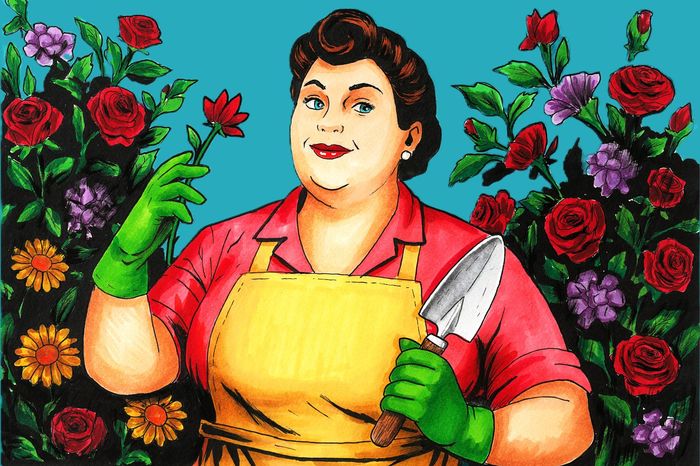Humans of Cambridge: The Different Scrubs of a College Nurse
Annie Rainbow explores the vital role college nurses play in supporting student wellbeing amid rising mental health challenges.

On Wednesday afternoons, a group gathers in the Fitzwilliam’s light-filled gallery, charcoal smudges on their fingers. They enjoy art and creating together without the expectation of talent. On Monday evenings, students roll out yoga mats, the hum of central Cambridge soundtracking their poses. They stretch and, most importantly, they breathe. On Tuesdays, students can sit down and enjoy crocheting with a mug of tea, and are given the space to simply watch the steam dance with the sun. Each activity is run and supported by a college nurse; the unsung champions of student wellbeing at this University.
Across Cambridge, college nurses form a quiet but essential backbone of student life: part GP, part counsellor, part surrogate parent. Almost every college employs a nurse, normally part of a larger wellbeing team. They are highly trained and deeply passionate about providing students with the tools and time to care for themselves. After working in Pembroke for eighteen years, Jan Brighting recalled the pressure of caring for such diverse issues: “I have lost sleep at night that I may have made the wrong decision.”
“I wanted to be really visible and accessible,” Jan told me. When describing her wellbeing initiatives her care is so apparent that you feel warmer in her presence. While all college nurses are no-nonsense about student confidentiality, Jan did not feel stuck in the boundaries of her work and home life, “my students know my grandchild, they’ve done easter egg hunts for him!” On her Fitzwilliam art project, she wanted to highlight to students that “we’re equals, we all have problems.” Trust is incredibly important to her role, “I don’t want to pathologize or infantilise students,” she told me.
“Part GP, part counsellor, part surrogate parent”
Joining Pembroke after a wide-ranging career, once being an addiction counsellor as well as a qualified teacher in a prison, Jan claimed that “you need to have a broad experience, you cannot have a young [college] nurse.” To be a college nurse, you must be immensely well qualified. Aside from having professional development reviews every three years, you are constantly getting feedback from both staff and students, as a must to stay qualified.
Rachael Arkle sees around eight hundred students throughout the academic year at Kings, not including those she sees during breaks. When listing her background, including (but not limited to) time in neurosurgery, A&E, and occupational health, somehow her three degrees are not the most impressive part. She advocates for students through different initiatives, including yoga, wellbeing workshops and talks, normally feeling like she “has the support of the college behind” her. The community, though, feels like her college’s biggest strength, whether with the gardening or housekeeping teams, being surrounded by “staff that really care” helps her feel motivated.
Lucy Turnell gets into Selwyn college at 8:30am, already aware of the incident reports from overnight. She prepares herself for meetings, appointments, and any wellbeing initiatives scheduled for that day. With eight to ten students per day, appointments either twenty or fourty-five minutes, she can feel the weight of the topics. To ground herself she enjoys “walking through grounds and seeking a college community in its setting; it stabilises me.” She told me that “not a day goes by when I don’t look out the window and think how lucky I am,” not just to be in such a beautiful place, but just to be with such a lovely student group. However, it is the students, and her bonds with them, that is most valuable for her.
“Rather than deliver a program, I would like to enable a program”
“I really do invest in them,” she admitted, enjoying “feeling like you’re helping people” as well as truly bonding with them. In fact, “at the end of Easter term, watching them all graduate” made her feel as though she was like a surrogate parent, leaving her “in floods of tears.”
Her room is a vibrant haze of plants, so vividly green that you feel your lungs sigh in relief as you enter. She described gifting students the “babies” that her plants propagate, as part of her ‘adopt a plant’ scheme. As epitomised in her ‘clangers’ anagram for wellbeing, Lucy believes the evolution of the collegiate nurse role is about teaching wellbeing. She said that she wanted “to work more closely with students […] rather than deliver a program, I would like to enable a program.” Ultimately, she wished to encourage proactive steps for health education beyond university.
Their positions are fast-paced and complex but ultimately rewarding. Jan, on the cusp of leaving her role, reflected that “this place gave me hope”. Rachael reported feeling “very empowered in my role”, and Lucy affirmed that the college nurse is “a very fulfilling job.” With all their attention on student advocacy, college nurses truly are the beating heart of the college community.
 News / Judge Business School advisor resigns over Epstein and Andrew links18 February 2026
News / Judge Business School advisor resigns over Epstein and Andrew links18 February 2026 News / Hundreds of Cambridge academics demand vote on fate of vet course20 February 2026
News / Hundreds of Cambridge academics demand vote on fate of vet course20 February 2026 News / Petition demands University reverse decision on vegan menu20 February 2026
News / Petition demands University reverse decision on vegan menu20 February 2026 News / CUCA members attend Reform rally in London20 February 2026
News / CUCA members attend Reform rally in London20 February 2026 News / Gov grants £36m to Cambridge supercomputer17 February 2026
News / Gov grants £36m to Cambridge supercomputer17 February 2026










